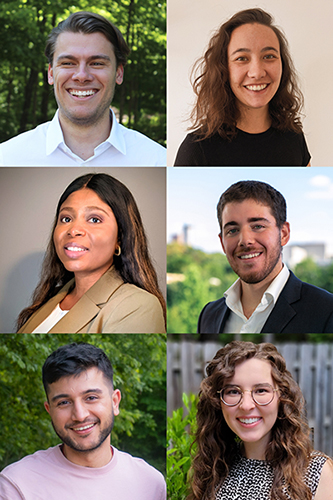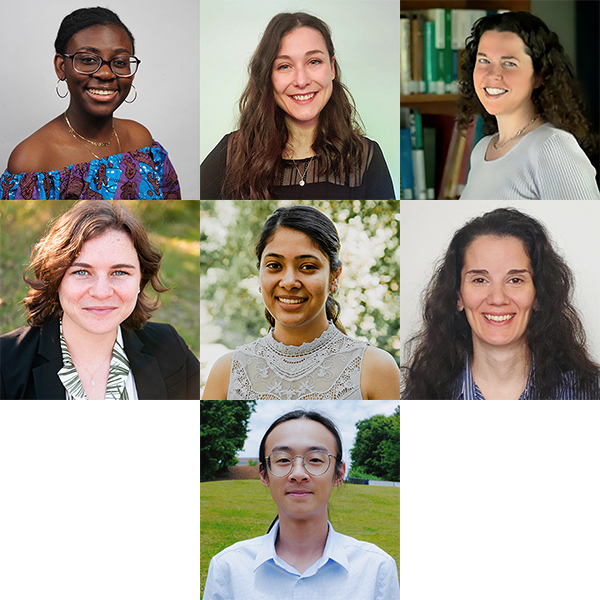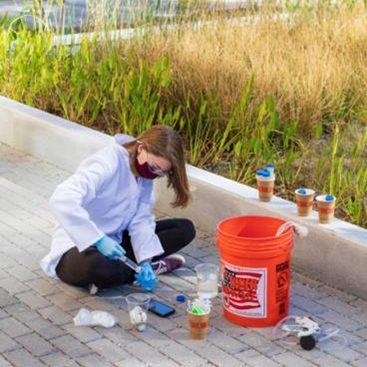Organization and Culture
To successfully carry out our ambitious agenda, BBISS aims to grow its core staff dedicated to BBISS’ capacity to support a culture of sustainability in academia. We are active in interdisciplinary grant writing and community-engaged research, strengthening industry ties, partnering with schools and colleges to help grow sustainability and climate-related interdisciplinary academic program offerings, accelerating commercialization and entrepreneurship activity in sustainability and climate solutions, growing the visibility and impact of Georgia Tech’s sustainability thought leadership, holding high-profile events, and contributing to philanthropic success in sustainability across Georgia Tech.
BBISS Graduate Fellows - Class II
The second class of Brook Byers Institute for Sustainable Systems (BBISS) Graduate Fellows has been selected. The BBISS Graduate Fellows Program provides graduate students with enhanced training in sustainability, team science, and leadership in addition to their usual programs of study. Each 2-year fellowship is funded by a generous gift from Brook and Shawn Byers and is additionally guided by a Faculty Advisory Board. The students apply their skills and talents, working directly with their peers, faculty, and external partners on long-term, large team, sustainability relevant projects. They are also afforded opportunities to organize and host seminar series, develop their professional networks, publish papers, draft proposals, and develop additional skills critical to their professional success and future careers leading research teams.
Micro-Grants Research Program
Devised by the BBISS and sponsored by the Kendeda Building Advisory Board, the Micro-Grants Research Program solicits proposals for very small scale ($50 to $500), short term, sustainability related, research studies to be conducted by members of the Georgia Tech community. Community investigators are encouraged to explore ways in which the Georgia Tech campus can continue to innovate, demonstrate, prove, and promote the adoption of best and next practices in regenerative design and operations. Researchers were also encouraged to use the United Nations Sustainable Development Goals as a framework for research design. All members of the Georgia Tech community are encouraged to apply. The program especially sought proposals from students and staff that had little or no prior research experience.






